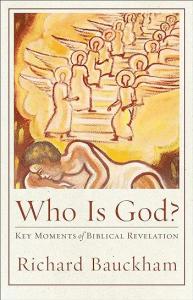 Dr. Richard Bauckham is a distinguished, British, New Testament scholar at Ridley Hall, Cambridge. In his studies, he specializes in Christology and the Gospel of John. He also is a Fellow of the British Academy. I have some of his books in my library. I once attended a forum at the Annual Meeting of the Society of Biblical Literature in which he spoke on the question of who authored the Gospel of John.
Dr. Richard Bauckham is a distinguished, British, New Testament scholar at Ridley Hall, Cambridge. In his studies, he specializes in Christology and the Gospel of John. He also is a Fellow of the British Academy. I have some of his books in my library. I once attended a forum at the Annual Meeting of the Society of Biblical Literature in which he spoke on the question of who authored the Gospel of John.
Although I disagree with Dr. Bauckham on the church doctrine of the Trinity and thus the deity of Christ, I regard Richard Bauckham as an otherwise insightful interpreter of the Bible and an excellent communicator. One example of our agreement, which is not commonly held among Bible scholars, regards the important prophesy in Daniel 7.9-10. It is about a future court scene in heaven that is attended by the “Ancient of Days,” who is surely God. Bauckham and I agree that the “thrones” that “were set in place” belong to “the twenty four elders” mentioned multiple times in the book of Revelation. We also believe these “elders” are a certain class of angels who comprise God’s royal council in heaven (Daniel) and lead the congregational worship there (Revelation).
One of Bauckham’s several books he has authored is entitled Who Is God? Key Moments of Biblical Revelation. It consists of four chapters and 128 pages that was published in 2020 by Baker Academic.
Dr. Bauckham begins this little book with an explanation about something that is much overlooked by most believers in the God of the Bible. Here’s how I would explain this: if we went to India and asked people if they “believe in God,” many would ask, “which one?” Indeed, the last time I checked, Hindus believe there are 33 million gods and goddesses. Similarly, during antiquity in the Middle East, they had a lot of gods that they believed in, but not 33 million!
Bauckham asks (pp. 1-2), “In biblical times, … which god was truly god? … Intensively the Bible is about the identity of God.” To illustrate this, Bauckham begins Chapter 1 with the interesting and far-reaching biblical narrative of a dream that the patriarch Jacob had about a ladder (better “staircase” says Bauckham, or ramp). He saw in the dream that the staircase was set on earth and reached up to heaven (Genesis 28.10-22). We then read, “the angels of God were ascending and descending on it” (v. 13 NRSV).
The text continues, “And the LORD stood beside him,” referring to Jacob, “and said, ‘I am the LORD, the God of Abraham your father and the God of Isaac; … Know that I am with you and will keep you wherever you go'” (Genesis 28.12, 15; emphasis mine). Jacob then awoke from this dream and excitedly exclaimed, “How awesome is this place! This is none other than the house of God, and this is the gate of heaven” (v. 17). So, Jacob named that place Bethel, which means “gate of heaven.”
Bauckham then comments on the precious truth of this dream, “To discover that God is ‘with us’ is probably the most important discovery anyone can make, for, once made, it colors all of life’s experiences. … Moreover, it appears that ‘The LORD be with you!’ was a standard greeting in use in Israel. It was how life should be, what one wished for oneself and for others. … Most English speakers who use the word ‘goodbye’ … are not aware that in its origins it meant ‘God be with you.'” (p. 11). In my next Still Here book 5, I will relate an experience I had similar to this that affected the course of my life.
Bauckham eventually cites Jesus’ statement in John 1.51 about himself, showing that Jacob’s staircase symbolizes God joining heaven and earth by means of Jesus. For, Jesus had said to his new disciple Nathanael, “Very truly, I tell you, you will see heaven opened and the angels of God ascending and descending upon the Son of Man,” referring to himself. Bauckham well states concerning the staircase in Jacob’s dream and this statement by Jesus about himself, “the obvious correspondence is between the staircase and the Son of Man. … Jesus himself is to be the way across the gap between heaven and earth. … the staircase/ladder is one that joins heaven to earth” (pp. 25-26).
Indeed, the Johannine Jesus later declared privately to his disciples at the Last Supper, “I am the way, and the truth, and the life. No one comes to the Father except through me” (John 14.6). Jesus as Jacob’s staircase helps us envision what Jesus means here about himself. The staircase reaching up to heaven helps us understand the closing message of the Bible about humans being united with God in his abode, which is a city. John the seer/author relates a vision he had, “Then I saw a new heaven and new earth; … And I saw the holy city, the new Jerusalem, coming down out of heaven from God” (Revelation 21.1-2). The text doesn’t say if this city of God actually settles upon the earth. I think it does not, but that it hovers just above the earth and that the staircase, symbolizing Jesus, joins them together.
We read further that this city of God that comes from heaven is “fifteen hundred miles; its length and width and height are equal” (Revelation 21.16). Bauckham says of it, as nearly all scholars do, that the holy city “takes the form of a perfect cube” (p. 32). I beg to differ. For, John first tells that an angel “carried me away to a great, high mountain and showed me the holy city Jerusalem coming down out of heaven from God” (v. 10). Thus, the city is shaped liked a mountain, not a cube.
I explain the shape of this city of God in my book, Warrior from Heaven (p. 213), “It is a great and high mountain that is much more massive than earthly Jerusalem. New Jerusalem is shaped foursquare at its bottom, with each side being 375 miles long, making its perimeter measure 1,500 miles. … this does not mean that the city is cube-shaped; rather, it is shaped like a mountain, with its peak rising up at its center to measure 375 miles high.” I then have an image in the book showing this.
In chapter 2, Richard turns to Moses’ burning bush incident at the foot of Mount Horeb (=Sinai), recorded in Exodus 3, in which God spoke to him from out of the bush that miraculously would not burn up. We read, “God called to him out of the bush, ‘Moses, Moses!’ And he said, ‘Here I am’ Then he said, ‘Come no closer! Remove the sandals from your feet, for the place on which you are standing is holy ground.’ He said further, ‘I am the God of your father, the God of Abraham, the God of Isaac, and the God of Jacob'” (Exodus 3.4-6).
God explains, “I will send you to Pharaoh to bring my people, the Israelites, out of Egypt. … I will be with you , and this shall be sign for you that it is I who sent you: when you have brought the people out of Egypt, you shall worship God on this mountain” (Exodus 3.12; emphasis mine). And that’s what happened–Moses led the Israelites out of Egypt to this Mount Sinai. God then gave Moses the Ten Commandments (Exodus 20). Again, God promised Moses, as he did Jacob, that he would be with him.
We then read more about who God is, the question of Bauckham’s book. Moses asks God, “What is his name?” (Exodus 3.14). This indicates a Bible truth that sometimes is difficult to comprehend. This Exodus narrative begins by telling us that Moses was tending sheep beside “Horeb, the mountain of God. There the angel of the LORD appeared to him in a flame of fire out of a bush” (vv. 1-2). Sometimes in such narratives it seems “the angel of the LORD (=Yahweh) is God himself, and other times it seems it refers to an actual angel who represents God. In all such cased, I am of the opinion that it is always a certain, actual angel who represents God. So, the angel converses with Moses as if the angel is God.
Thus we read further in this narrative about Moses’ question about God’s name, “God said to Moses, ‘I AM WHO I AM.’ He said further, ‘Thus you shall say to the Israelites, I AM has sent me to you'” (Exodus 3.14). Some Bible readers have thought this means that God should be identified as “I AM” rather than by some name. But the text says next, “‘The LORD, the God of your ancestors, … has sent me to you'” (v. 15). Whenever we read “LORD” in the Old Testament of English Bibles, that is a traditional rendering of God’s name, which is YHWH in the Hebrew text. Most scholars translate it Yahweh, and some render it Yehvah. It is God’s name, and it appears nearly 7,000 times in the Old Testament. So, “I AM” is an explanation of God’s identity, and Yahweh is his name.
Bauckham now goes into detail about “I AM” and “Yahweh” in Exodus 3. He explains, “The name YHWH looks like the verb ‘ehyeh, … ‘to be’ (the verb hayah). … We do not really know what the Divine Name means” (pp. 43-44). Bauckham later observes, “Jesus never refers to God as ‘Lord’ … Jesus used the word ‘Father’ as his own chosen substitute for the Divine Name” (pp. 51, 54).
In chapter 3, Bauckham addresses a very important subject about who God is by saying, “The popular notion that the God of the Hebrew Bible is characterized by vengeance and wrath, while the God of the New Testament is, by contrast, a God of love is a travesty that deserves to be vigorously refuted.” Bauckham seeks to prove this by taking up God’s revelation to Moses recorded in Exodus 33–34. One of two episodes relates how Moses had the two stone tablets with the Ten Commandments written on them, which signify God’s righteous character and his requirements for his people. Then we read, “The LORD descended in the cloud and stood with him [Moses] there, and proclaimed the name, ‘The LORD.” The LORD passed before him, and proclaimed, ‘The LORD, the LORD, a God merciful and gracious, slow to anger, and abounding in steadfast love and faithfulness'” (Exodus 34.5-6).
Bauckham explains that “love” in Exodus 34.6 translates hesed in the Hebrew Bible. He says it has been popularly translated “loving-kindness,” but it is best translated “steadfast love.” He adds, “The word seems to refer primarily to loyalty in a covenant or relationship. … God keeps his word. He remains faithful to his people even when they are faithless” (p. 69).
Yet Bauckham is quick to caution, “God’s goodness does not mean that he will indefinitely tolerate evil. Those who will not repent of their evil must in the end perish with it. For God to be truly and finlaly good to his whole creation he must remove from it whatever spoils and destroys its goodness–ideally by repentance, but if necessary by judgment” (p. 79).
I part with Bauckham regarding his last chapter, chapter 4, entitled “The Revelation of the Trinity,” even though he hardly makes a case for Trinitarianism in it. He admits, “Up until this point in the biblical story, God had not been perceived as Trinity because God did not, in the Old Testament story, act in a way that revealed God as Trinity” (p. 92). He says the revelation of God as Trinity begins with Jesus’ baptism. The Gospel of Mark records that God the Father spoke from heaven, saying, “You are my Son, the Beloved; with you I am well pleased,” and “the Spirit descended like a dove on him” (Mark 1.10-11). All of this is true; yet I don’t think it indicates God is three persons.
I believe the Holy Spirit is the Spirit of God, who is the Father. It is like a human being having a spirit. Since we are made in the image of God, just as our spirit does not constitute another personality in each of us humans, neither is God’s Spirit an actual Person. Surprisingly, Bauckham says (p. 93) the Spirit descending upon Jesus in the form of a dove was a “vision” even though all three synoptic accounts do not say that.
Bauckham then says, “Many scholars claim that the title ‘Son of God’ Mark is a messianic title that means no more than that Jesus is a human being appointed by God to act as God’s agent in bringing salvation” (p. 97). Indeed, even though I was a Trinitarian for 22 years, for the past 41 years this exactly what I have believed. And in what follows this Bauckham remark, he surprisingly doesn’t refute this.
Bauckham then addresses Jesus’ dereliction cry on the cross–“My God, my God, why have you forsaken me?” (Mark 15.34). Like so many Bible readers and even scholars, Bauckham says of it, “Jesus was never more the divine Son of his heavenly Father than when he reached this extreme point of human degradation, reduced even to crying out that his Father had forsaken him … even as the Father also leaves him to die in this abandoned way. For Jesus to bear the burden of humanity’s sin and suffering, left by his Father to die, he had to be acting out of love for his Father, fulfilling his Father’s will and making it his own will” (p. 107).
I disagree adamantly. Jesus’ dereliction cry does not mean God had abandoned him, but that that was the way he felt in his horrible pain he was suffering as a crucified victim. Everyone agrees that Jesus was quoting the first verse in Psalm 22, written by King David who wrote half of all the biblical psalter. The psalm then says, “Why are you so far from helping me, from the words of my groaning?” (v. 2). David is relating the pain and misery that so many of God’s people have experienced one time or another in their lives, and they felt God was so far from helping them.
But David does not continue in this psalm with this viewpoint–that God was so far away from him. For, David says to God in Psalm 22.11, “Do not be far from me.” And he continues, “But you, O LORD, do not be far away! O my help, come quickly to my aid!” (v. 19). Then David utters most reassuringly and his suffering and God’s whereabouts, “he did not hide his face from me, but heard when I cried to him” (v. 24). Here, David reveals that his opening words of this psalm, “why have you forsaken me?” reflected only how he felt in his misery, not what actually was reality. That is, God was there with David all the time during his suffering, and he just didn’t realize it. It was the same with Jesus on the cross.
So, it is not only Psalm 22.1 that characterized Jesus on the cross, but the entire Psalm 22. Many Christians through the ages have affirmed that so much of this psalm is a prophetic type that portrays Jesus’ suffering on the cross. For David adds, “all my bones are out of joint; my heart is like wax; it is melted within my breast; my mouth is dried up like a potsherd, and my tongue sticks to my jaws; you lay me in the dust of death. For dogs are all around me; a company of evildoers encircles me. My hands and feet have shriveled; I can count all my bones. They stare and gloat over me; they divide my clothes among themselves, and for my clothing they cast lots” (vv. 14-18). The latter corresponds to the New Testament account that the soldiers, “when they had crucified” Jesus, “divided his clothes among themselves by casting lots” (Mt 27.35). For more on this see my blog post, “Did God Forsake Jesus on the Cross?”
If God had forsaken Jesus while he was in such pain and suffering only because it was God’s will for the salvation humankind, Jesus would have been greater than God! I don’t see why people don’t seem to grasp this. Moreover, Jesus often had said prior to his crucifixion that God the Father is always “with” him. He said, “The one who sent me is with me; he has not left me alone, for I always do what is pleasing to him” (John 8.29).
But most of all Jesus said to his apostles at the Last Supper, thus right before his arrest, condemnation, and crucifixion, “The hour is coming, indeed it has come, when you will be scattered, each one to his home, and you will leave me alone. Yet I am not alone because the Father is with me” (John 16.32). Surely Jesus would not have said this if, only hours later, God would abandon Jesus while he was hanging on the cross.
Moreover, Bauckham saying that God the Father forsook Jesus on the cross is so completely contrary to Bauckham’s main thrust in this book, about God being “with” Jacob and Moses in their mission God gave them to do. How much more so for Jesus.
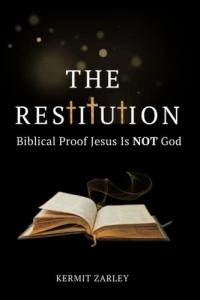 My book, The Restitution: Biblical Proof Jesus Is NOT God (570 pp.), is available at amazon.com where it just received this stellar review from a pastor named A. Pull:
My book, The Restitution: Biblical Proof Jesus Is NOT God (570 pp.), is available at amazon.com where it just received this stellar review from a pastor named A. Pull:

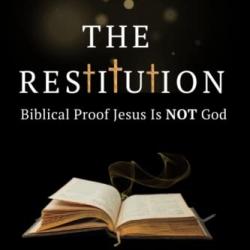
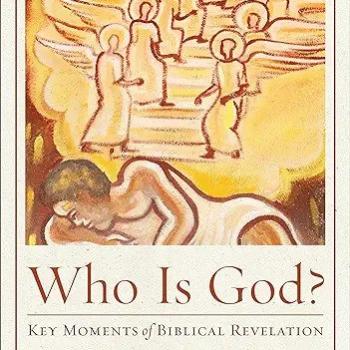


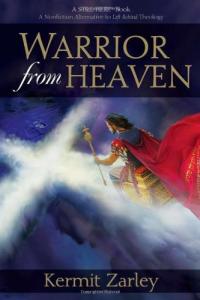
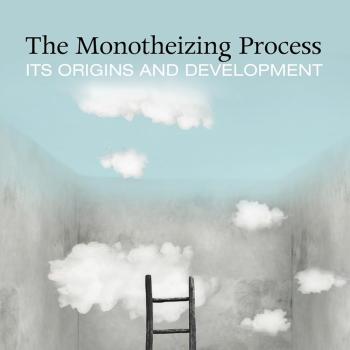
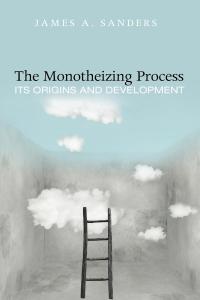
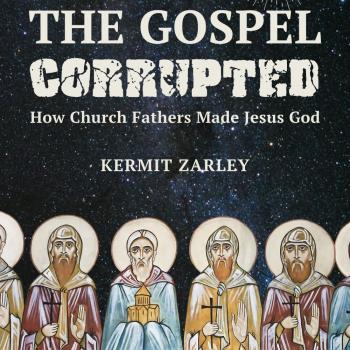
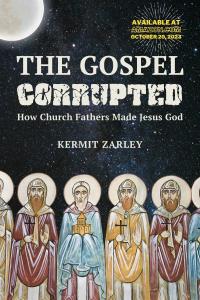
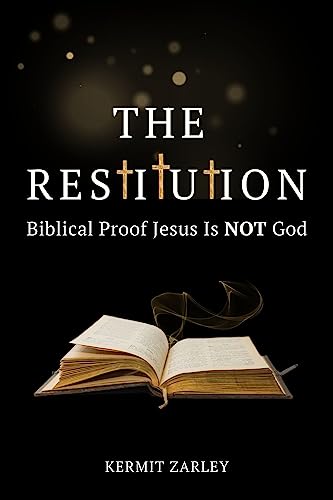 Some of my readers might know the name Kermit Zarley in connection with his career as a professional golfer, with notable finishes in dozens of PGA and Champions tournaments . However, Zarley is the author of a half dozen books on biblical topics. His magnum opus is this 540pp book,
Some of my readers might know the name Kermit Zarley in connection with his career as a professional golfer, with notable finishes in dozens of PGA and Champions tournaments . However, Zarley is the author of a half dozen books on biblical topics. His magnum opus is this 540pp book, 










